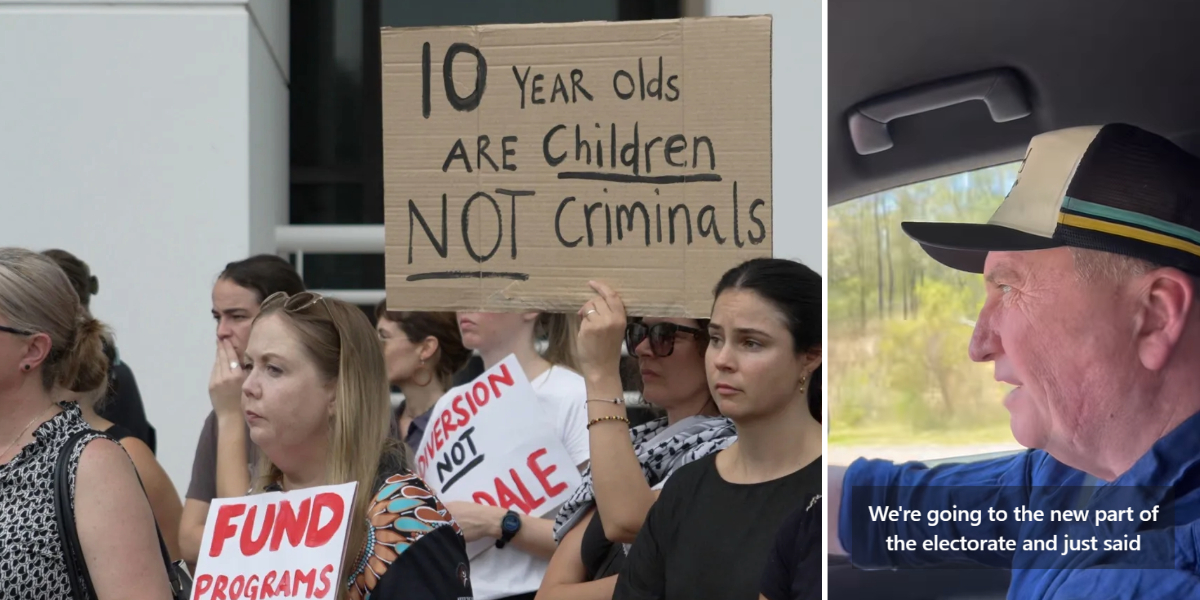Member for New England, Barnaby Joyce, has ratcheted up the rhetoric to a campaign footing already, travelling to the new boundaries of his electorate and talking crime and fear to win some votes.
Joyce is clearly inspired by the result of the Queensland and Northern Territory that he has chosen to invoke fear, the most powerful and influential emotions in any political campaign.
Crime is not a normal topic for federal elections, given most of the apparatus to deal with crime is in control of the states, but a recent post on Joyce’s Facebook page led with an anecdotal story laced with non-specific things to be afraid of.
“A husband and wife in the north of my electorate of New England sleep in separate rooms after 40 years of marriage. They are still deeply in love, but she insists on sleeping in a locked room whilst he won’t. Why a locked room? Because she is scared. Scared of being broken into and assaulted at night. It is not a misconceived fear. The stories are terrifying,” he wrote.
“Three youths breaking into a house belting a man, taking the keys of the car and driving it from the front of the garage through the house. Main streets of towns boarded and shuttered and, in some instances, burnt out and looking like a third world war zone and police unsupported and so unwilling to be stationed in there. Cars being burnt out after being stolen. Courts slapping the wrists that should be handcuffed and taken to jail. People terrified to speak out because they will get burnt out. This is not Zimbabwe or South Africa; this is Northern NSW.”
He went on to acknowledge he was knowingly outside of his lane.
“In the south they wonder why one issue can define two elections one in Queensland and the other in the Northern Territory, law and order. It will be an issue at the next Federal election, even though it is a state one.”
Facts are not at all important in a fear based political debate: and the statistics of crime levels being at record lows is only a minor inconvenience easily discharged by an emotive story.
Take for example the recent Queensland campaign – “Queenslanders weren’t safe” because of the youth crime crisis, the LNP said. The face of the LNP’s ‘Adult Crime, Adult Time’ policy campaign was candidate Russell Field, whose son and pregnant fiancé were run down and killed by a drunken young car hijacker. He won the bayside seat of Capalaba for the LNP with a 10% swing.
Queensland Police Service statistics contradict this claim of a ‘crime crisis’. In the 25-year period between 1998 and 2023 when Labor was in power for all but three years, police figures show offences trended downwards from a range of 160-200 offences per 100,000 population between 1998 and 2002 to a range of 50-90 offences per 100,000 population between 2015 and 2023.
The Country Liberal Party (CLP) also won government on a crime platform with more emotion than facts, campaigning to “keep Territorians safe” and a similar ‘Adult Crime, Adult Time’ policy. The Territory has now lowered the age of criminal responsibility from 12 back to 10, just a few months after it was raised.
Crime rates are about half of what they were 15 years ago in the Northern Territory, according to Australian Bureau of Statistics figures. The UN is calling for the age of criminal responsibility to be raised to 14.
Joyce ended his post by conflating half a dozen different issues – including racism, social media, property rights, domestic migration, and native vegetation – and making a bizarre claim that police don’t act because they fear if they “try to enforce order the law may put them in jail and not the person creating social anarchy.”
Don’t miss any of the important stories from around the region. Subscribe to our email list.

